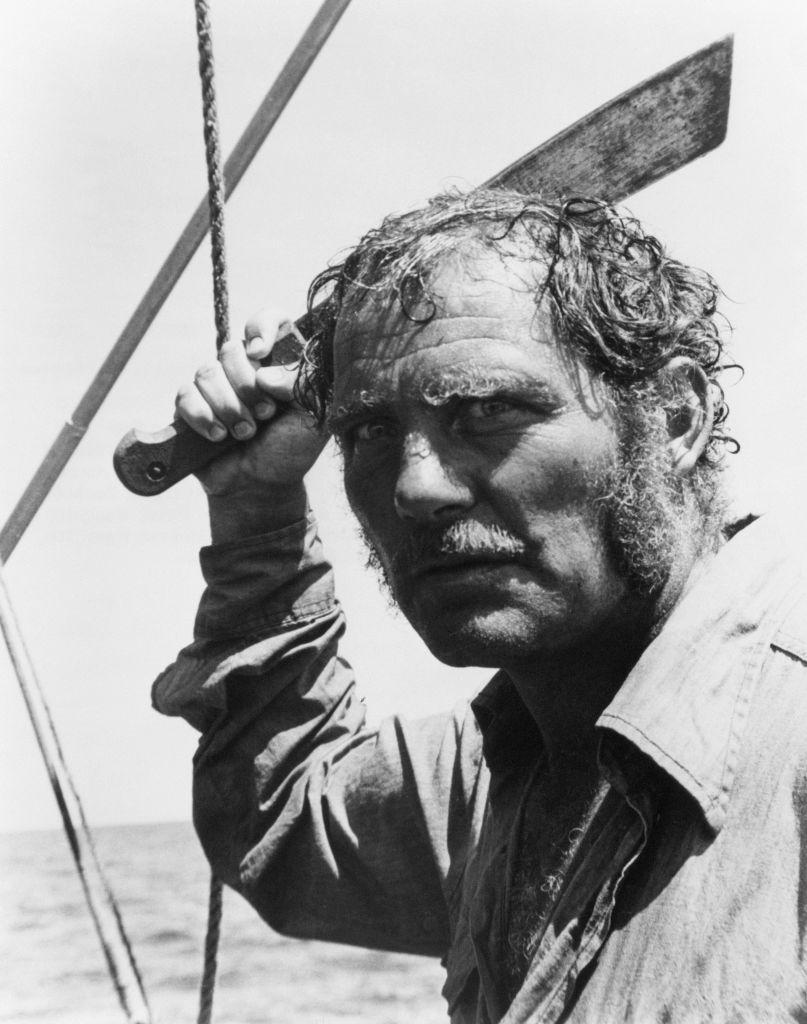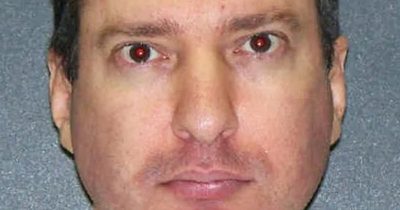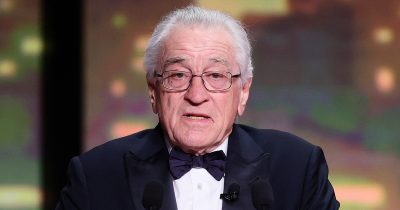
Who doesn’t love Jaws? This 1975 classic has terrified swimmers for decades and remains one of the greatest thrillers ever made. But while the movie made a splash with its suspenseful storytelling, did you know it’s also swimming with little-known bloopers and fascinating behind-the-scenes mishaps?
And here’s the kicker — a deleted scene exists that most fans have never seen. It involves a moment so chilling it might have outdone the shark itself. Curious? Let’s dive in!
I’ve watched Jaws at least 50 times, and every single viewing still leaves me in awe. But if you were a kid in 1975, you had to muster the courage to watch the movie – that’s if your parents even let you go in the first place.
Looking at it nowadays, it feels like they just don’t make films like this anymore — films cast so perfectly, with heart, passion, and a mission to give the audience an unforgettable experience above all else.
Thank you, Steven Spielberg, for giving us a treasure trove of timeless classics that all began with this groundbreaking masterpiece.
Even a masterpiece like Jaws has its imperfections — after all, nobody’s perfect — but some of these quirks have only enhanced its legendary status.
The truth behind the iconic line
There are countless unforgettable scenes in Jaws, but one that stands out is when Chief Brody (Roy Scheider) is chumming the water to lure the shark. Suddenly, Jaws makes a chilling appearance, startling Brody and prompting his now-iconic line: “You’re gonna need a bigger boat.”

But when Jaws was first test-screened, everyone in the audience was so startled by the shark’s appearance that they were still screaming when Scheider dropped his iconic line. Because Speilberg didn’t want real audiences to miss the line, he & the editors extended the scene enough for people to settle back down and start paying attention again after seeing the shark; he also raised the volume of Scheider’s voice for good measure.
According to writer Carl Gottlieb, Roy Scheider also ad-libbed the iconic line ”You’re gonna need a bigger boat,” which only adds to the goosebumps-inducing magic of that scene.
John Williams eerie music
Composer John Williams’ eerie music made the movie a timeless classic.
But when Williams first played his score for Jaws to director Steven Spielberg, Spielberg couldn’t help but laugh, saying, “That’s funny, John, really; but what did you really have in mind for the theme of Jaws?”
Little did Spielberg know, that simple, iconic two-note tune would become a game-changer. Spielberg later admitted that without Williams’s score, the movie would have been only half as successful. And for Williams? It was the start of a legendary career.
Spielberg was rooting for the shark
Jaws was actually based on Peter Benchley’s 1974 novel, but what’s even more surprising is how the film rights were snagged before the book was even published.
Producers Richard D. Zanuck and David Brown discovered the novel thanks to a tip-off in Cosmopolitan magazine. Brown, whose wife Helen Gurley Brown was the editor, found a small card with a plot summary that ended with “might make a good movie.”
After reading it overnight, the two were hooked, calling it ”the most exciting thing they’d ever read.” They bought the film rights in 1973 for $175,000 (about $1.2 million today) and brought Jaws to life.
Interestingly, Spielberg admitted that when he first read the book, he was actually rooting for the shark — because the human characters were so unlikeable!
Stiff drinks and shark drama
Here’s a fun fact: the very first screening of Jaws happened in Dallas. Producer David Brown and Richard Zanuck were initially nervous, fearing audiences might laugh at the mechanical shark.
“We went and had a very stiff drink,” Brown recalled in the 25th-anniversary DVD exploring the making of Jaws.
But as the lights dimmed, their fears quickly vanished. “We went into the theater, and the screams started, and they never stopped. And we were pinching each other. It was incredible.”
Across all its releases, Jaws has earned an impressive $476.5 million worldwide.
Robert Shaw robbed of an Oscar?
Many believe Robert Shaw was robbed of an Oscar for his unforgettable performance in Jaws. From start to finish, every moment he’s on screen, he absolutely owns it. His intensity is almost unbelievable, yet he also brings a surprising depth of emotion when talking about his harrowing experience aboard the USS Indianapolis
The ”USS Indianapolis” speech, where Shaw’s character Quint recounts the traumatic events of the sinking, is one of the most chilling and powerful moments in film history.
Who wrote the USS Indianapolis speech in Jaws?
The debate over who wrote the iconic “USS Indianapolis” speech in Jaws remains unresolved.
While playwright Howard Sackler initially conceived the speech, screenwriter John Milius was asked to expand it, resulting in a 10-page monologue. Director Steven Spielberg credits Milius for the words, but Robert Shaw’s editing made the speech what it is in the film. However, co-screenwriter Carl Gottlieb argues that it was Robert Shaw himself who wrote the final version.

“Somehow, the mythology was that Milius wrote that speech, but there were 10 versions of that speech, including my own,” Gottlieb said.
They gave a version to Robert Shaw, and the actor took it all in and made it his own.
”And one night while we are all at dinner … he came in with a handful of paper and said, ‘I think I have the pesky speech licked,’” Gottlieb recalled. “And he basically performed it for the table. And we all went, ‘Wow.’ And Steven said, ‘That’s what we’re shooting.’”
Delivered the speech while drunk
When it came time to film the famous USS Indianapolis monologue, Shaw attempted to deliver the speech while drunk, thinking the scene, which takes place late at night, called for it.
Unfortunately, nothing from that take could be used. Realizing his mistake, Shaw called Steven Spielberg later that night, expressing regret and asking for another chance. The following day, Shaw delivered the monologue flawlessly in one take, his performance electrifying and haunting, cementing Quint as one of cinema’s most memorable characters.
Robert Shaw & Richard Dreyfuss hated each other
Though widely respected for his talent, Robert Shaw’s struggles with alcohol created tension on set. In later interviews, Roy Scheider described his co-star as ”a perfect gentleman whenever he was sober. All he needed was one drink and then he turned into a competitive son-of-a-bitch.”
Carl Gottlieb’s The Jaws Log reveals that Shaw often had a drink between takes, at one point even admitting, “I wish I could quit drinking.”

During filming, Richard Dreyfuss once shocked and somewhat horrified the crew when he grabbed Robert Shaw’s drink and tossed it into the ocean.
Shaw, clearly upset, didn’t let it go and allegedly made Dreyfuss’s life difficult for the rest of the shoot. He taunted him relentlessly, offering him $1,000 to climb the 70-foot mast of the boat and jump into the ocean, calling him a coward each time he refused. Things escalated when Shaw sprayed Dreyfuss with a fire hose, causing the younger actor to storm off, declaring, ”That’s it. I don’t want to work with you anymore. Go fuck yourself.”
Tragic ending of Robert Shaw
Sadly, Robert Shaw’s life was tragically cut short. The actor and writer passed away in 1978, just three years after his unforgettable performance as Quint in Jaws.
The English-born actor died from a heart attack at the age of 51 in Ireland. Shaw suddenly fell ill while driving, pulled over, stepped out of the car, and collapsed on the roadside.
Roy Scheider, Shaw’s co-star in Jaws, passed away in 2011 after bravely battling cancer for nearly two years.
The Alex Kintner Sandwich
Decades after Jaws was released, Lee Fierro, who played Mrs. Kintner, walked into a seafood restaurant and noticed a menu item called the ”Alex Kintner Sandwich.” This, of course, caught her attention. She remarked to the staff that she had once played the mother of Alex Kintner in the movie (Alex was young boy who tragically became one of the shark’s victims.)
To her surprise, Jeffrey Voorhees, the actor who portrayed her son Alex in the film, came running out from the back of the restaurant.
The two hadn’t seen each other since they filmed that iconic scene. It was a heartwarming reunion – it had been years since they’d worked together, and there they were, brought together by a quirky menu item.
The deleted scene in Jaws
In Jaws, the death of young Alex Kintner is one of the film’s most shocking and pivotal moments. I’ve always found this scene to be the scariest and most disturbing, and a deleted scene that shows the death in full would have only intensified that sense of terror.
Originally, the plan was to show the shark breaking the surface and devouring Alex. In the original version, a doll of Alex was floating among the bathers, and the shark was supposed to leap out of the water, grabbing the doll and raft in its mouth.
However, as was typical with the mechanical shark, it kept malfunctioning — either coming out of the water too high, not high enough, or completely missing the raft.
Finally, the shark succeeded in grabbing the raft and rolled over on its side, mimicking the behavior of a real shark. This take was the one Spielberg decided to use.
Truth about Alex Kintner scene
However, the producers worried that the image of the shark with Alex in its mouth was too disturbing and could potentially jeopardize the film’s PG rating. As a result, Spielberg and editor Verna Fields made the decision to trim the beginning of the shot so that only the shark’s fins were briefly visible as it flipped over.

Several theories circulate about why the full scene was ultimately cut. One theory points to the persistent malfunctions with the mechanical shark, which forced Spielberg to keep the shark hidden for much of the film, enhancing the suspense. Another reason suggested is that the scene was simply too graphic and shocking for audiences, while Spielberg also didn’t want to reveal the shark too early in the movie.
While no full footage of the deleted scene exists, brief snippets can be seen in a documentary on the Jaws Blu-ray, leaving fans to imagine what might have been.
Orca – the mystery boat
The Orca, Quint’s legendary shark-hunting boat, has a bit of a mystic vibe, especially when it comes to its yellow barrels and the word “ORCA” on the back.
For anyone with a sharp eye, there’s a fun little goof in Jaws involving the barrels. When the crew heads out, there are five yellow barrels on the Orca. But after they manage to get the third barrel into the shark, Quint walks past them with his harpoon gun… and surprise — there are still three barrels left!
And if that’s not enough, the word “ORCA” on the back of the boat keeps changing from shot to shot, going from rusty to shiny. And did you notice that the machete that Quint jams into the starboard side of the Orca keeps disappearing and reappearing throughout the rest of the movie?
The cherry tree
Here’s another little mistake that only those with a sharp eye or a deep knowledge of plants and trees might notice. Keep an eye out for this the next time you watch the movie: At the beginning of Jaws, a cherry tree is shown in full bloom.
However, the film is set in July, and cherry trees actually bloom in May.
Jaws is a film that never stops giving. So next time you watch, keep your eyes peeled — you might just spot something new, or maybe even something a little bit off, adding to the magic of this legendary thriller.
Don’t forget to share your thoughts, and dive back into the waters of Jaws whenever you’re ready for another unforgettable adventure!




